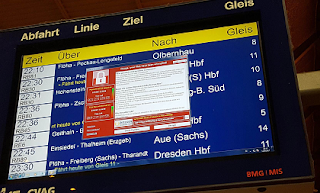One of the biggest and disastrous cyberattack the world has ever seen is still claiming victims and threatens to create even more havoc to those who will return to work soon and are unaware of what happened over the weekend.
The attack is a virus that locks people out of their computer files until they pay a ransom to the hackers.
Experts say the spread of the virus had been stymied by a security researcher in the U.K. Hackers have issued new versions of the virus that cyber security organizations are actively trying to counter and stamp out.
"We will get a decryption tool eventually, but for the moment, it's still a live threat and we're still in disaster recovery mode," Rob Wainwright, the head of the European Union's law enforcement agency Europol, told CNN's Becky Anderson last 14 May. He added that the agency is still analyzing the virus and has yet to identify who is responsible for the attack.
The U.K.'s National Cyber Security Centre said that there have been "no sustained new attacks" of the kind that struck last 12 May. However, the agency added that some infections may not yet have been detected, and that existing infections can spread within networks.
Wainwright said earlier on British TV that the attack was "unprecedented" in its reach, with more than 200,000 victims in at least 150 countries.
Organizations around the world spent the weekend trying to recover after being hit by a virus that seeks to seize control of computers until victims pay a ransom.
Hospitals, major companies and government offices were among those that were badly affected. Cybersecurity experts have said the majority of the attacks targeted Russia, Ukraine and Taiwan. But U.K. hospitals, Chinese universities and global firms like Fedex also reported they had come under assault.
U.S. Treasury Secretary Steven Mnuchin, at a meeting in Italy, said the attack was a reminder of the importance of cybersecurity. "It's a big priority of mine that we protect the financial infrastructure," he said.
The attack is a virus that locks people out of their computer files until they pay a ransom to the hackers.
Experts say the spread of the virus had been stymied by a security researcher in the U.K. Hackers have issued new versions of the virus that cyber security organizations are actively trying to counter and stamp out.
"We will get a decryption tool eventually, but for the moment, it's still a live threat and we're still in disaster recovery mode," Rob Wainwright, the head of the European Union's law enforcement agency Europol, told CNN's Becky Anderson last 14 May. He added that the agency is still analyzing the virus and has yet to identify who is responsible for the attack.
The U.K.'s National Cyber Security Centre said that there have been "no sustained new attacks" of the kind that struck last 12 May. However, the agency added that some infections may not yet have been detected, and that existing infections can spread within networks.
Wainwright said earlier on British TV that the attack was "unprecedented" in its reach, with more than 200,000 victims in at least 150 countries.
Organizations around the world spent the weekend trying to recover after being hit by a virus that seeks to seize control of computers until victims pay a ransom.
Hospitals, major companies and government offices were among those that were badly affected. Cybersecurity experts have said the majority of the attacks targeted Russia, Ukraine and Taiwan. But U.K. hospitals, Chinese universities and global firms like Fedex also reported they had come under assault.
U.S. Treasury Secretary Steven Mnuchin, at a meeting in Italy, said the attack was a reminder of the importance of cybersecurity. "It's a big priority of mine that we protect the financial infrastructure," he said.


No comments:
Post a Comment